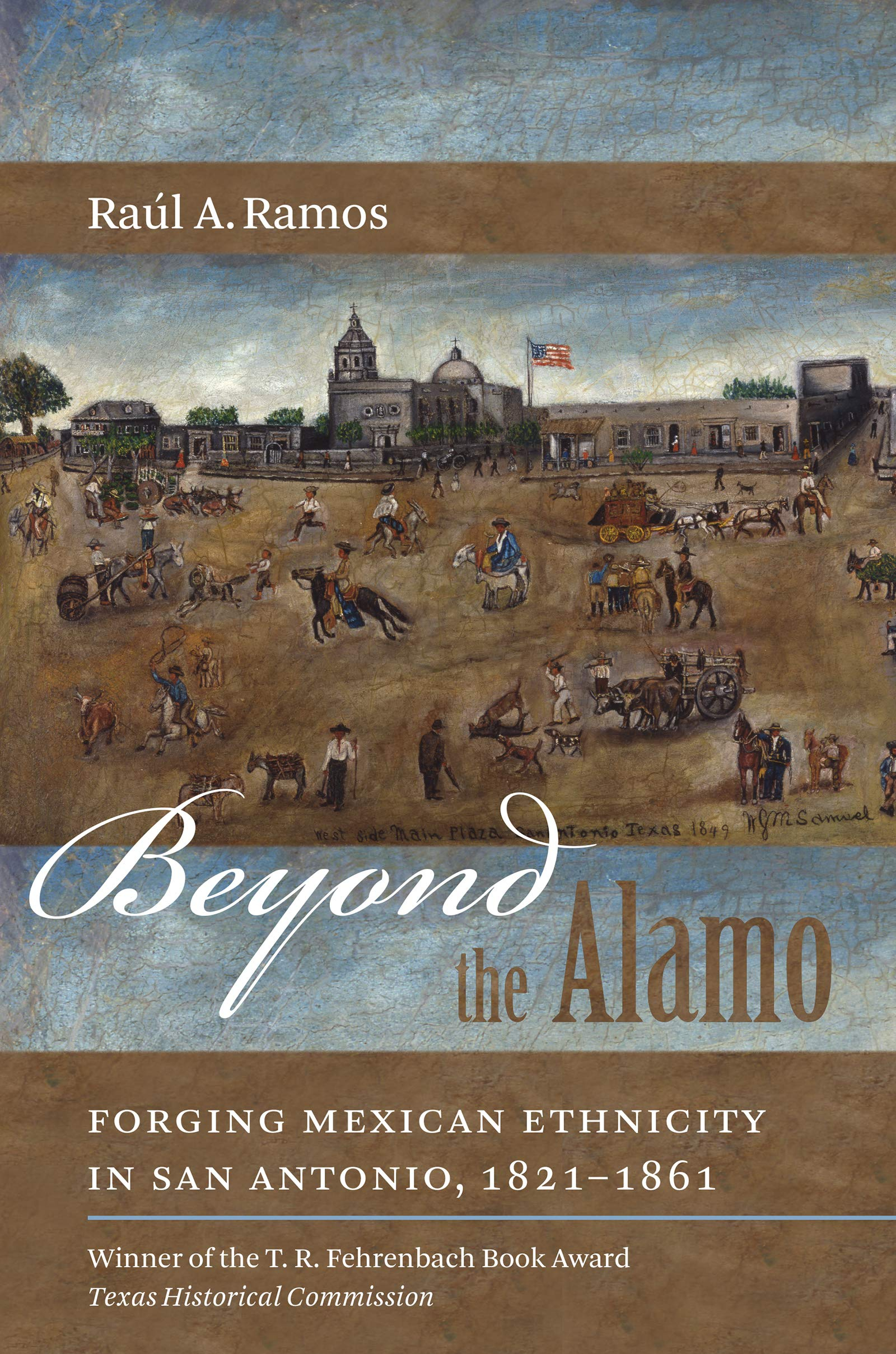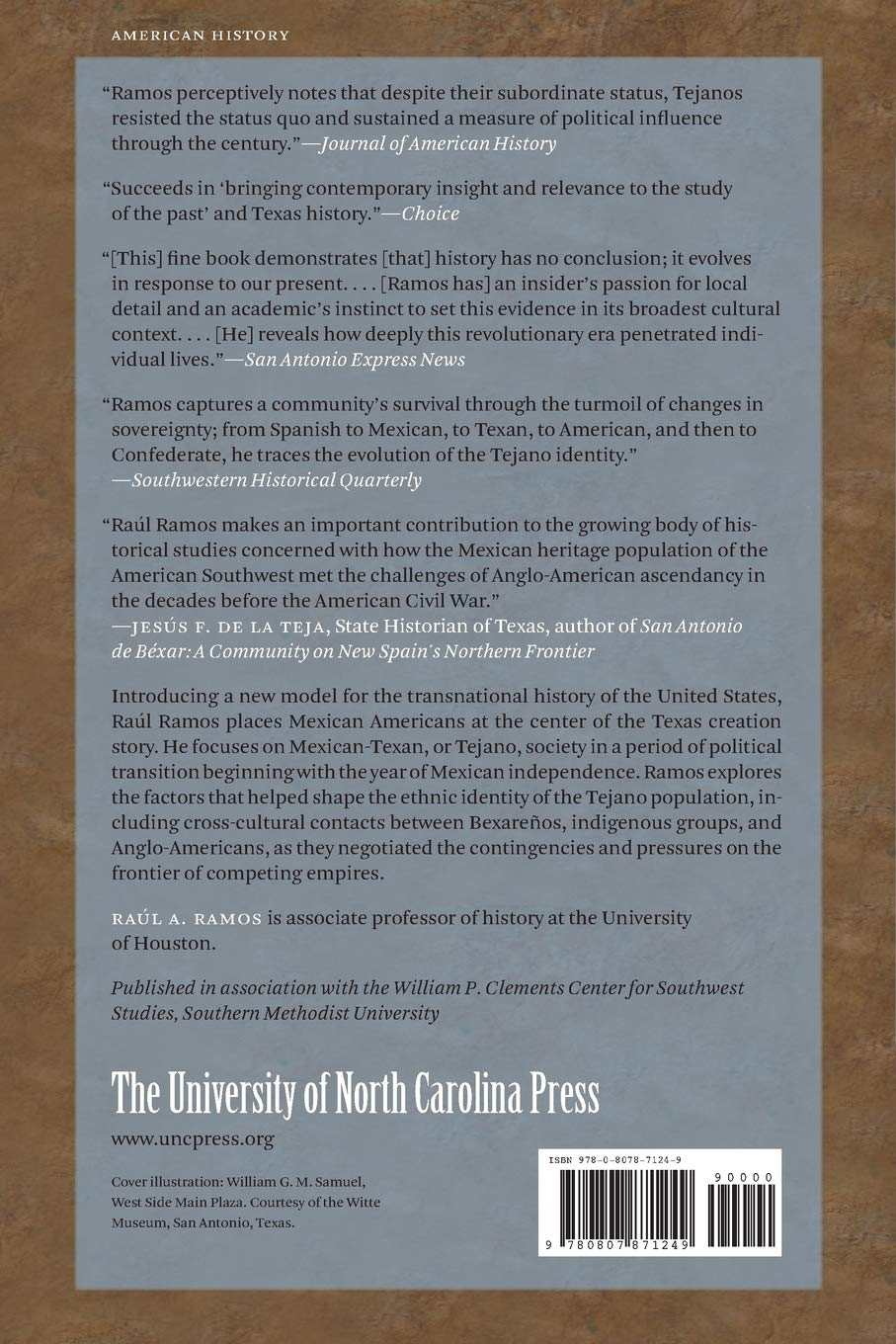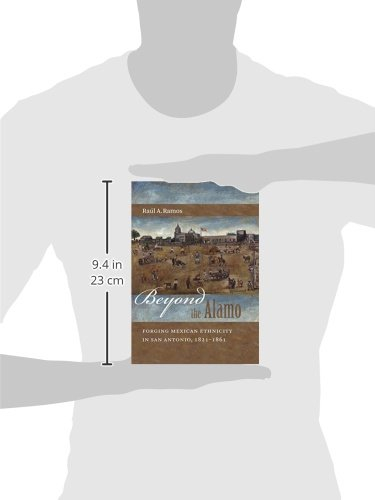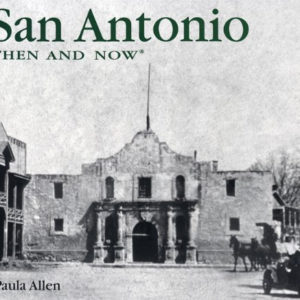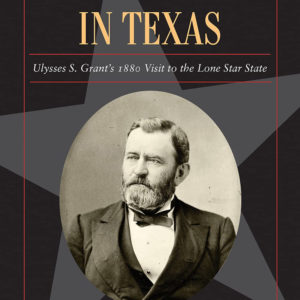[Ramos’s] first fine book demonstrates [that] history has no conclusion; it evolves in response to our present. . . . [Ramos has] an insider’s passion for local detail and an academic’s instinct to set this evidence in its broadest cultural context. . . . [Ramos] reveals how deeply this revolutionary era penetrated individual lives.–San Antonio Express News
A thorough treatment of Tejano ethnic identity and race relations. . . . A great aid for those teaching histories of the American south-west, and a good fit as a required text for upper division and graduate seminars in Chicana/o history and the history of the West.–Social History
An interesting and readable contribution to the discussion of identity formation in borderlands and Texas history from a Tejano point of view.–East Texas Historical Journal
Clearly written and thoroughly researched . . . not only a significant addition to scholarship on Chicano/a history, immigration, and nationalism, but also a work accessible to academics and students alike.–Canadian Journal of History
Engaging and compelling. . . . A significant contribution to the study of race, ethnicity, and nation and deepen[s] our understanding of how Tejanos met the incredible challenges posed by manifest destiny and American economic transnationalism.–The Journal of Southern History
Illustrates with a vivid style the vicissitudes local elite families embarked upon as they functioned as cultural brokers between two competing national projects.–Journal of American Ethnic History
Impressive . . . tells a fascinating story of how the population of Texas, under a developing republic, created a tapestry of regional identities.–Ethnohistory
Ramos captures a community’s survival through the turmoil of changes in sovereignty; from Spanish to Mexican, to Texan, to American, and then to Confederate, he traces the evolution of the Tejano identity.–Southwestern Historical Quarterly
Ramos perceptively notes that despite their subordinate status, Tejanos resisted the status quo and sustained a measure of political influence through the century.–Journal of American History
Succeeds in ‘bringing contemporary insight and relevance to the study of the past’ and Texas history. . . . Recommended.–Choice
About the Author
Raul A. Ramos is assistant professor of history at the University of Houston.

